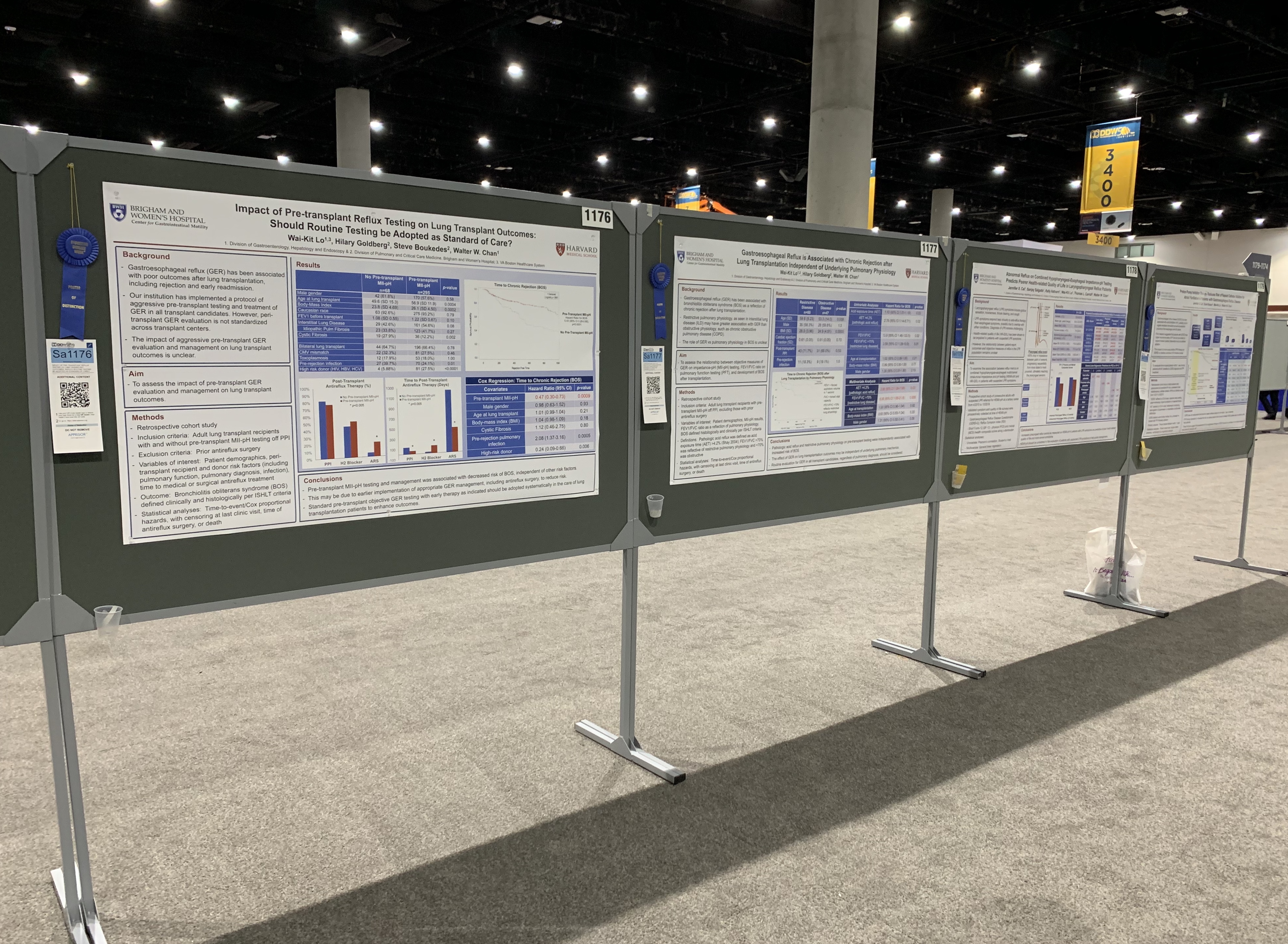Dr. Walter Chan is the Director of Clinical Research Education at the Division of Gastroenterology, Hepatology and Endoscopy at Brigham and Women's Hospital. He received clinical research training during his fellowship training, when he also completed an MPH degree in clinical effectiveness from Harvard School of Public Health. His research focus centers around esophageal and gastrointestinal motility disorders. His main clinical research interests include gastroesophageal reflux disease (GERD) and its extraesophageal manifestations, such as pulmonary complications, lung transplantation outcomes, and laryngopharyngeal relfux (LPR). He is also actively engaged in studies in the diagnosis and management of eosinophilic esophagitis, functional gastrointestinal disorders, small intestinal bacterial overgrowth, and anorectal/pelvic floor dysfunction. His research team's work have been published at peer-reviewed journals and presented at major national/international scientific meetings.
For information regarding prior published work, please visit the Publications page.
For information on our group's clinical research on SARS-CoV2 or COVID-19, please visit the COVID Research page.
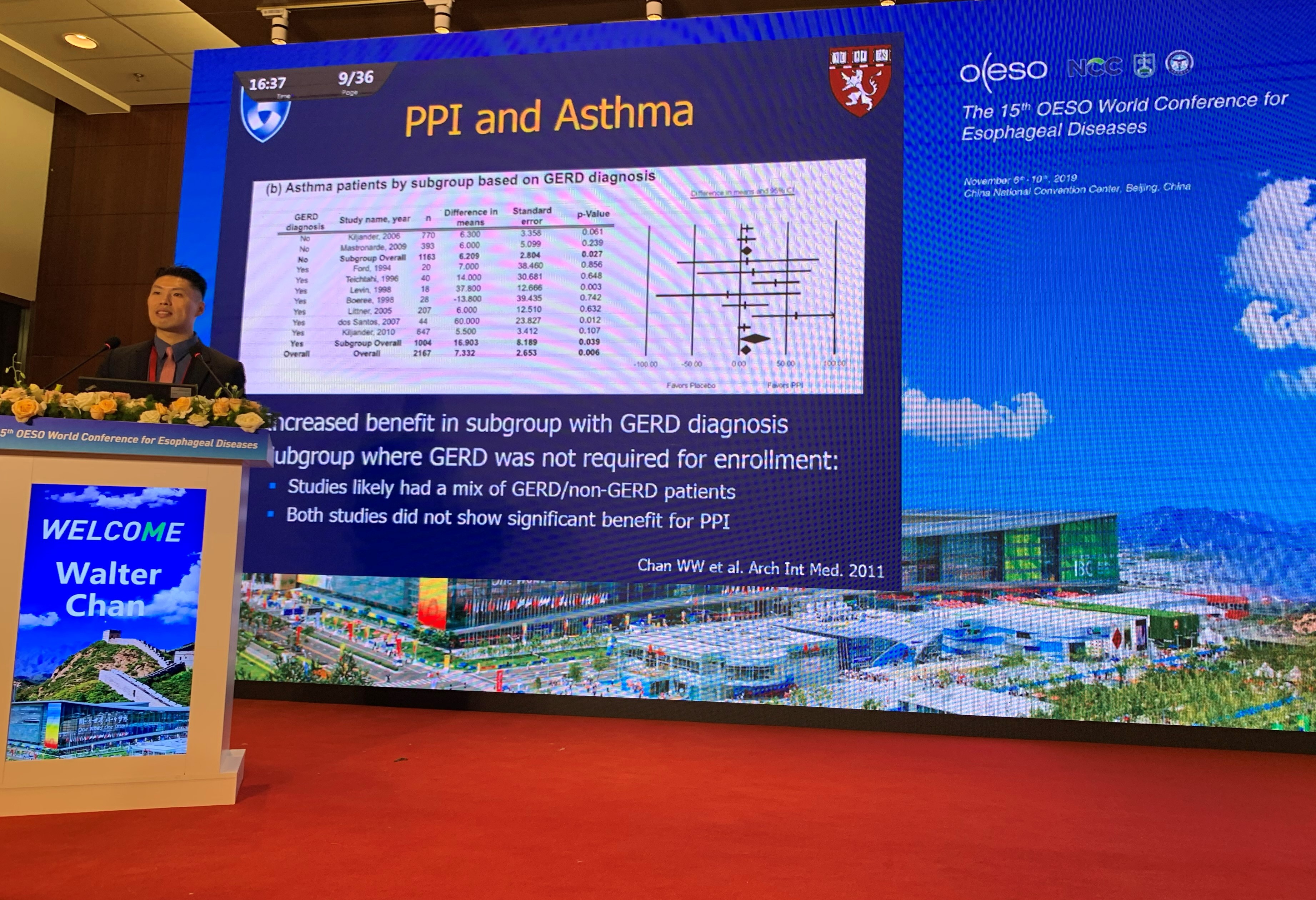
Selected research projects and potential opportunities for students / trainees:
Study of gastroesophageal reflux disease (GERD) and extraesophageal manifestations
- Impact of GERD on clinical course and outcome of chronic pulmonary diseases, including asthma, IPF, COPD, etc.
- Effect of GERD on the risks of rejection, outcome, and mortality of lung transplant recipients
- The role of esophageal function testing and objective GERD assessment in the management of lung transplant candidates/recipients
- Study parameters and novel metrics on esophageal function testing that may prognosticate outcomes of extraesophageal reflux
- The potential benefits/risks of anti-reflux therapy in patients with chronic lung disease and lung transplantation
- Understanding of the pathophysiology of laryngopharyngeal reflux (LPR)
- Evaluation of clinical features and esophageal function characteristics of patients with LPR symptoms
- Identification of optimal diagnostic and management algorithm of patients with LPR symptoms
- The relationship between GERD and cardiac arrhythmia, particularly with atrial fibrillation
- Impact of GERD on treatment outcome of cardiac arrhythmia, including radiofrequency ablation of atrial fribillation
- The role of esophageal function and reflux testing in the management of cardiac arrhythmia
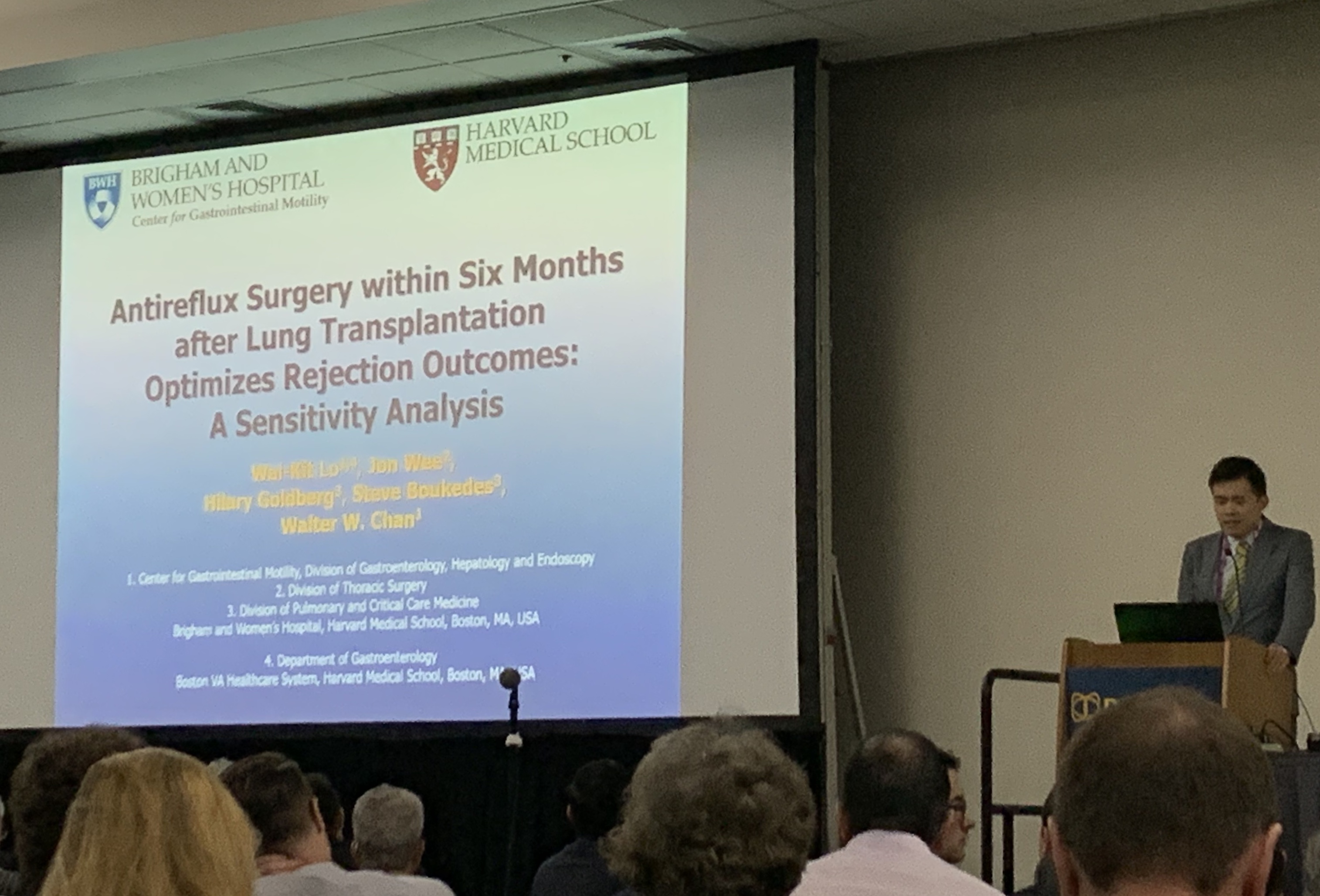
Esophageal function and motility
- Manometric parameters and clinical features of esophagogastric junction outflow obstruction (EGJOO)
- Predictors of clinical outcomes of EGJOO and other motility disorders
- The role of esophageal motility disorders in Barrett's esophagus
- Features of esophageal function/motility in patients with obesity and after bariatric surgery
- Swallowing symptoms and esophageal function characteristics of post-bariatric surgery patients
- Esophageal motility and clinical outcomes in post-lung transplantation and chronic lung disease patients
- The role of esophageal dysmotility in patients with LPR symptoms
- Clinical characteristics and risk factors for rumination syndrome
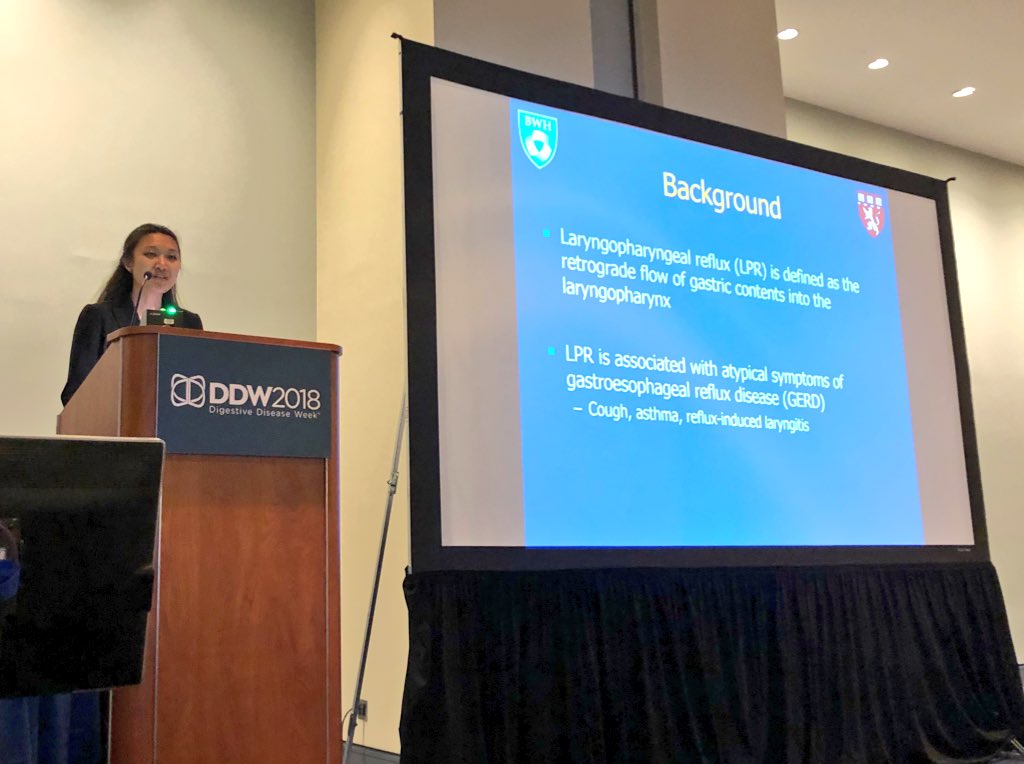
Eosinophilic esophagitis (EoE)
- Clinical factors associated with histologic response to proton pump inhibitors (PPI) in EoE
- Optimal dosing and timing of PPI for inducing histologic remission in EoE
- Mast cell involvement and activity/clinical outcomes of EoE
- Endoscopic features of EoE and association with clinical symptoms
- Histologic pattern of eosinophilic and clinical course of EoE
- Maintenance strategy for long-term management of EoE
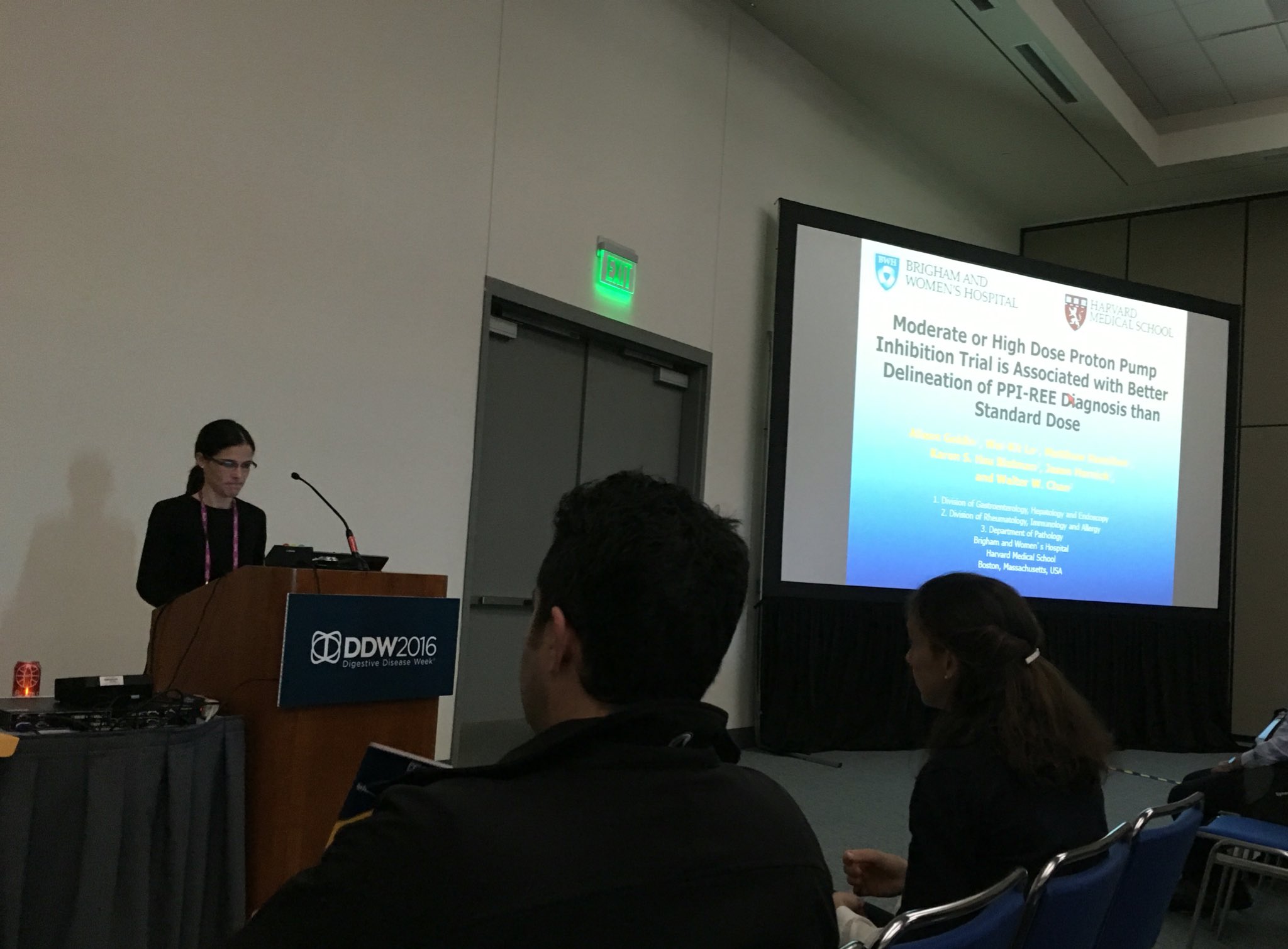
Risk factors and clinical course of small intestinal bacterial overgrowth
- Clinical risk factors for positive breath testing for small intestinal bacterial overgrowth (SIBO)
- Assessment of SIBO symptoms and treatment response using patient reported outcomes measures (PROM)
- Predictors of symptom response to antibiotic therapy for SIBO
- Utility of SIBO assessment in fecal microbiota transplantation
- Breath testing protocol for SIBO in patients post-abdominal and bariatric surgeries
- Association between probiotic use and SIBO
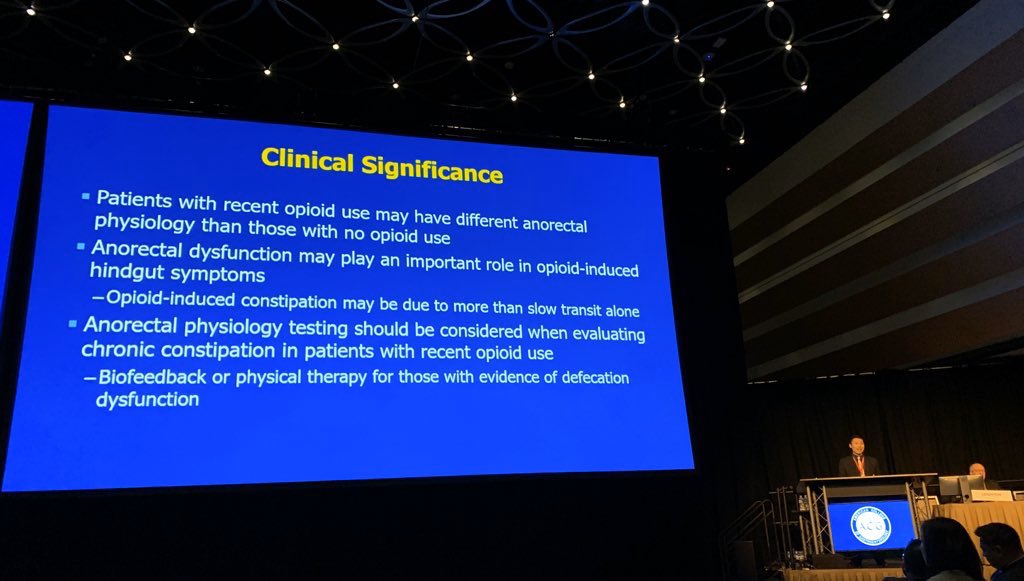
Colorectal and anorectal dysfunction
- Prevalence of fecal incontinence and defecation disorders among patients with obesity
- Anorectal physiologic changes among patients with obesity as measured on anorectal manometry and physiology testing
- Impact of opioid use in anorectal function and sensation
- The association between obstetric history and anorectal function measured on manometry and physiology testing
